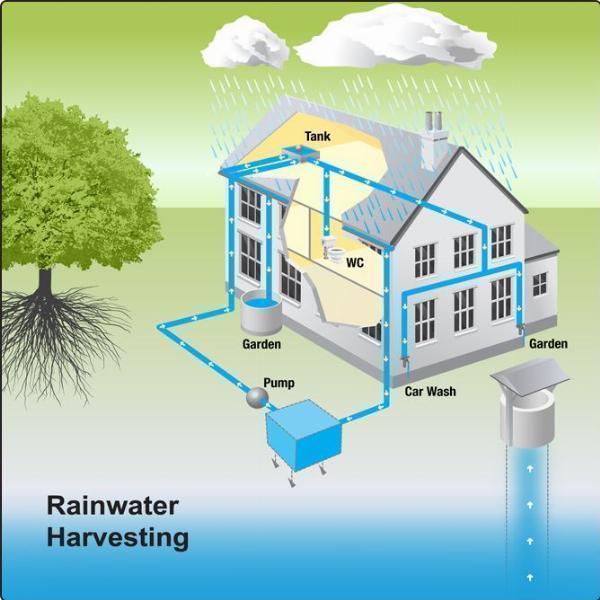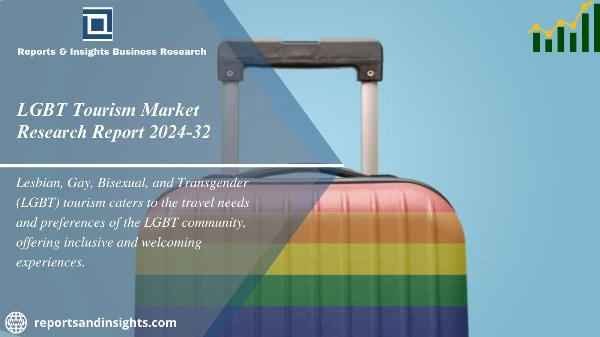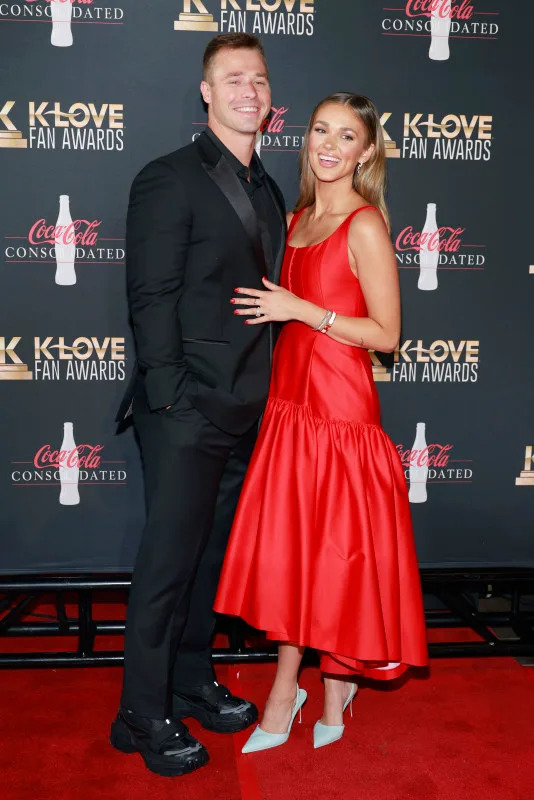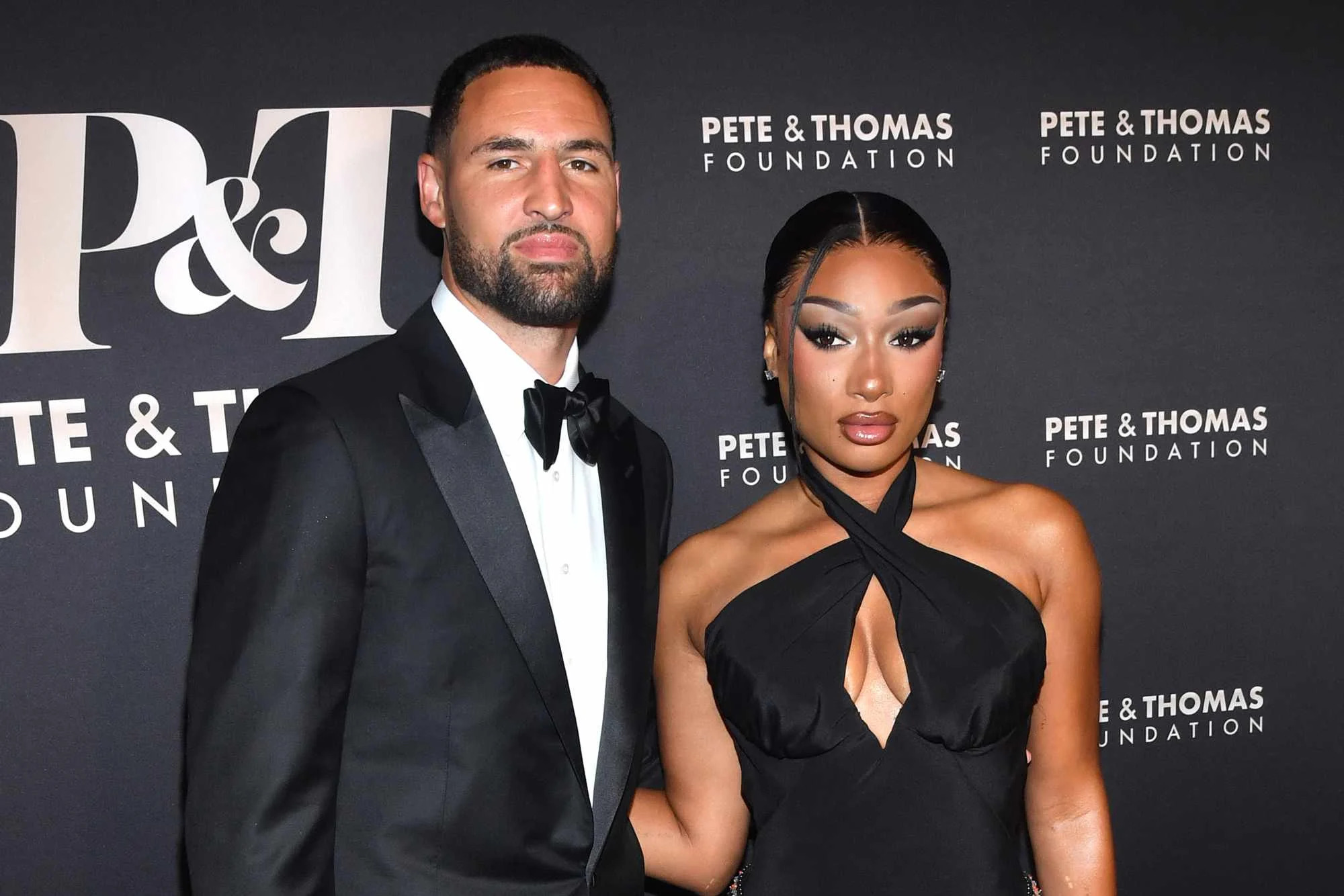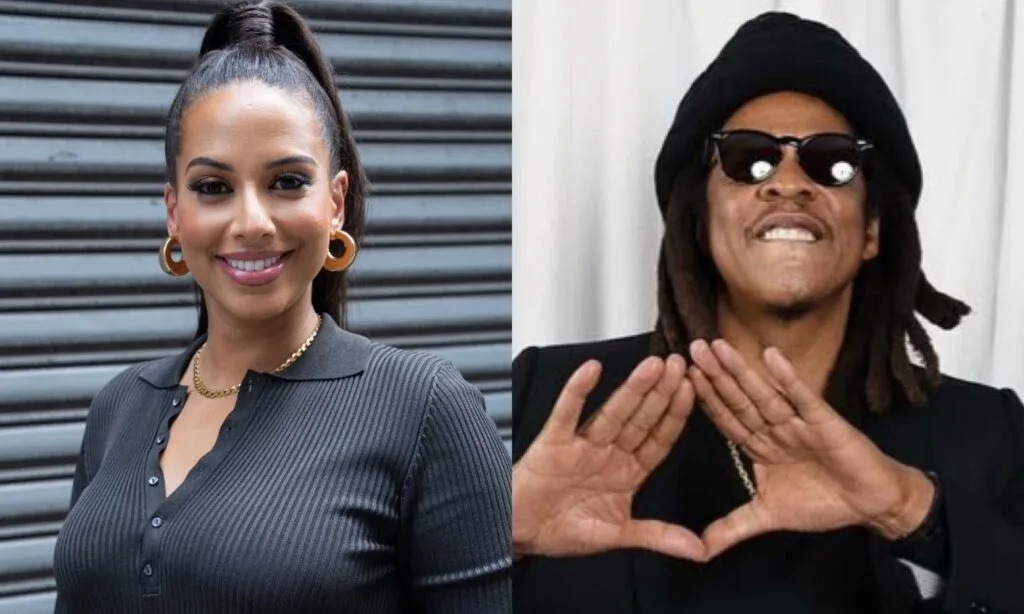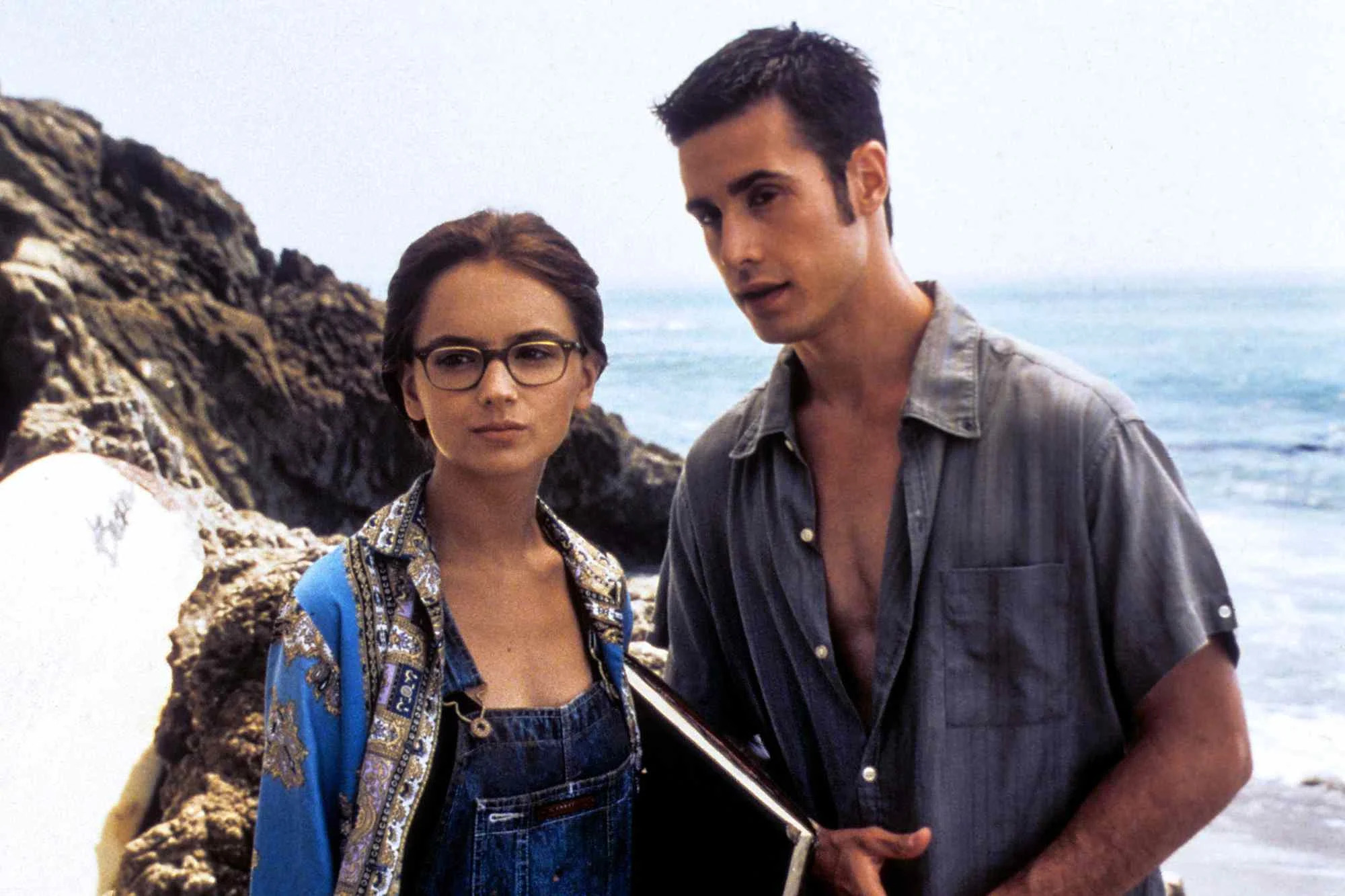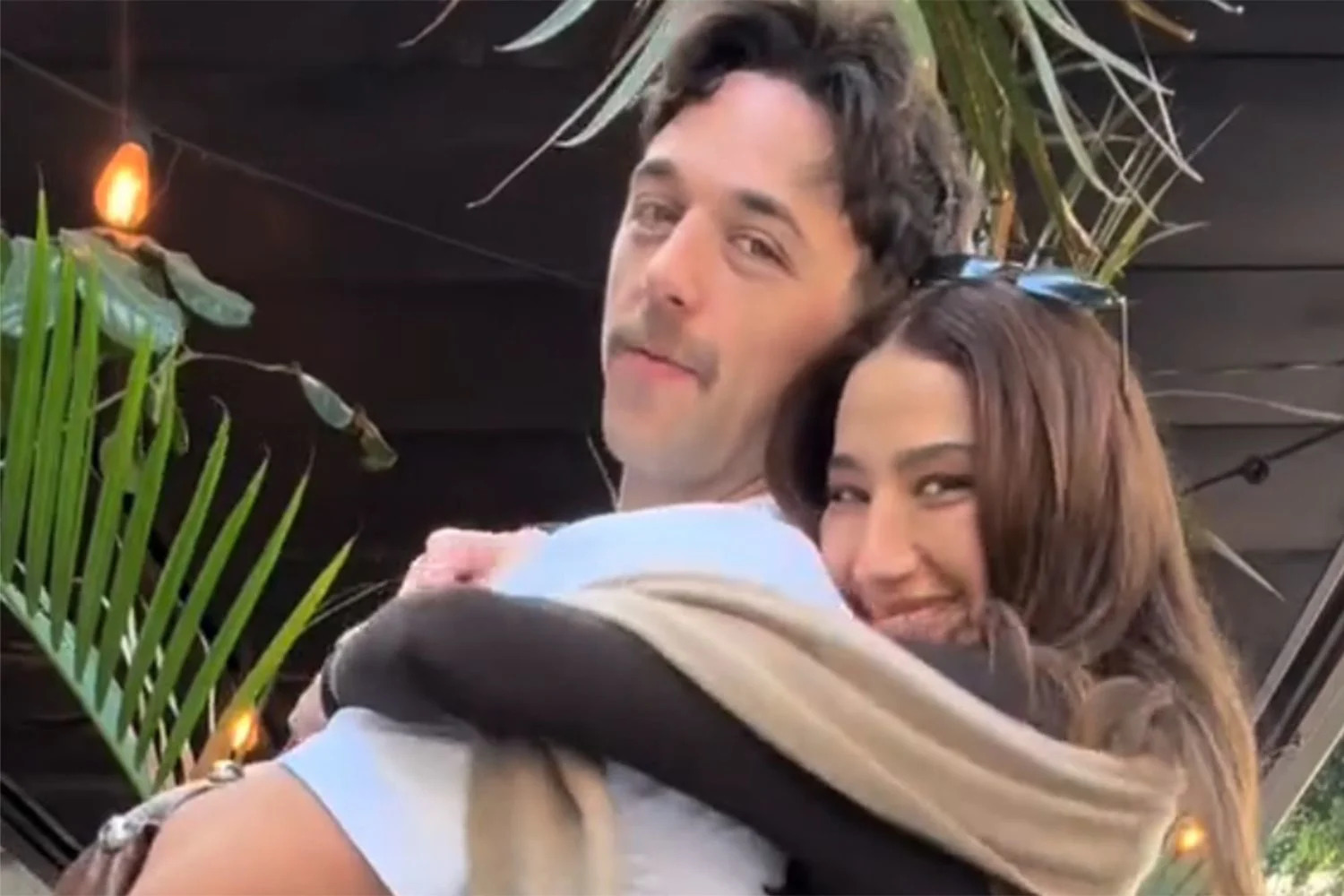I couldn't understand the 'Love Island USA' obsession. Then I crashed a finale watch party.
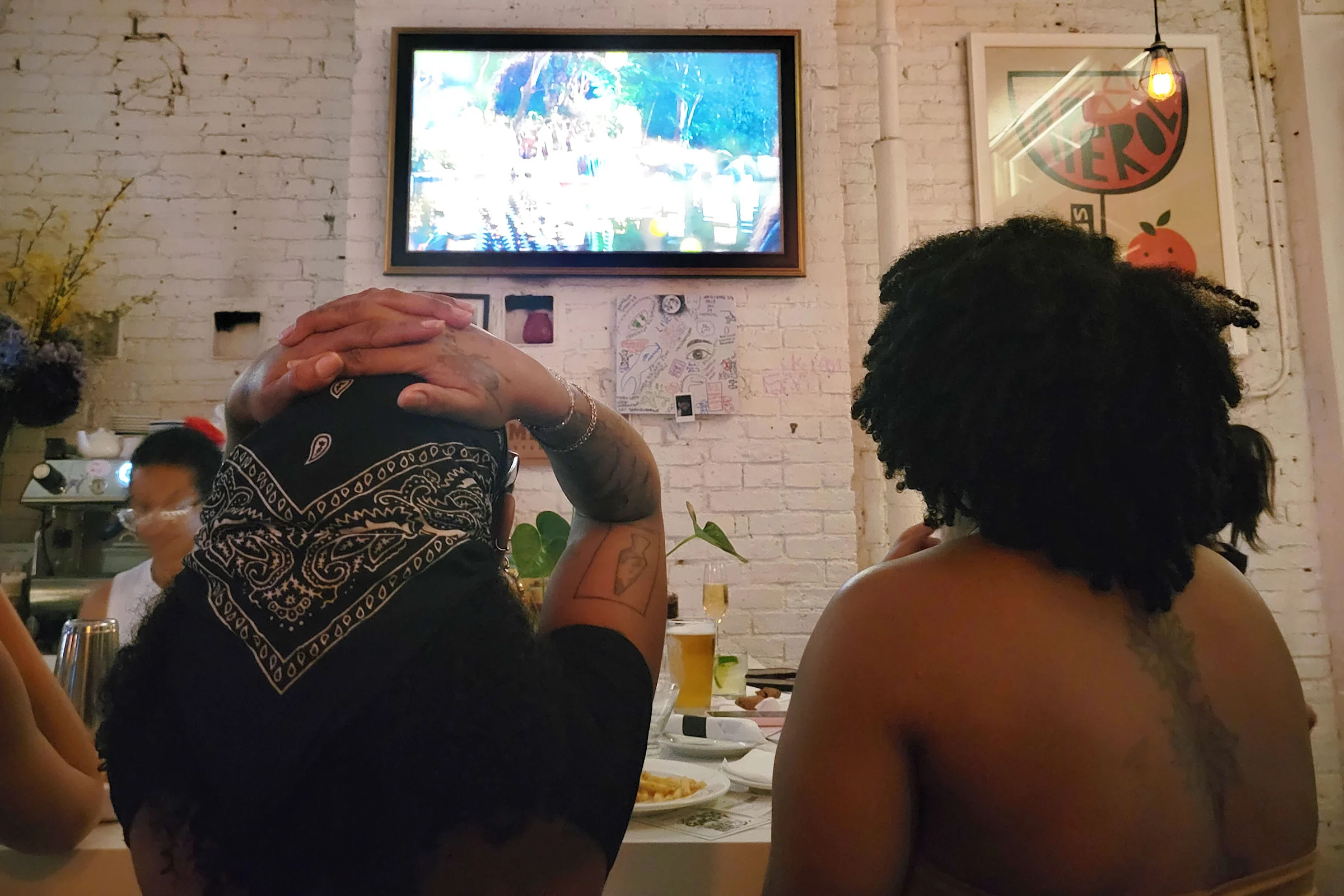
Warning: This story contains spoilers for the finale of Love Island USA.
I love a good reality show, but I’ve spent years not watching Love Island USA for no other reason than the time commitment. It feels greedy for a show to demand my attention for new hourlong episodes on Peacock six out of the seven days a week for six weeks straight! Who do these people think they are? But after spending at least 30 minutes in bafflement on the beach over the July Fourth weekend while everyone around me gushed about their favorite (and least favorite) TV stars I’d never heard of, my resistance began to crack. It was the most lost I’d felt in a cultural conversation in more than a decade.
Love Island USA isn’t just taking over beaches either. It’s all over social media, where the mere word mamacita has launched 1,000 memes. And so, on a humid summer night, I trekked into New York City’s Greenwich Village to join fans at a watch party at the Comedy Shop for the Love Island USA Season 7 finale and learn firsthand, as a first-time viewer, why this season propelled the show from a quirky U.K. import to an inescapable American classic.
AdvertisementAdvertisement#_R_1272adkalhb5fiv5vddbH1_ iframe AdvertisementAdvertisement#_R_2272adkalhb5fiv5vddbH1_ iframeAs I soon found out, Islanders are an exquisitely chill and welcoming bunch — and they’re happy to explain how this neon-dyed, swimsuit-clad sensation won them over.
Immaculate ‘vibes’
The watch party was pure exuberance. Before the show began, music blared while Aftersun, Love Island USA’s weekly recap show, also on Peacock, played in the background. There were giant TVs everywhere — one facing the bar’s patio outside, three facing the bar itself and another in the darkened back room, where fans sat in neatly organized rows of anticipation. The staff wore their island best (and roses) to honor the romantic occasion. At the corner of the bar under one of the TVs, I overheard one 20-something bartender lean toward another to compliment the “vibes.”
The energy in the room was immaculate. Fans came dressed up in hot girl ’fits, gold jewelry and stylish footwear. Behind the bar, right underneath the hotties in translucent beachwear onscreen, the Guinness toucan looked right at home — and so too did a light pink Labubu perched near the liquor bottles. Below the bar, patrons’ Adidas Sambas and chic sandals abounded. And at the bar, we all sat waiting in anticipation for the show to begin.
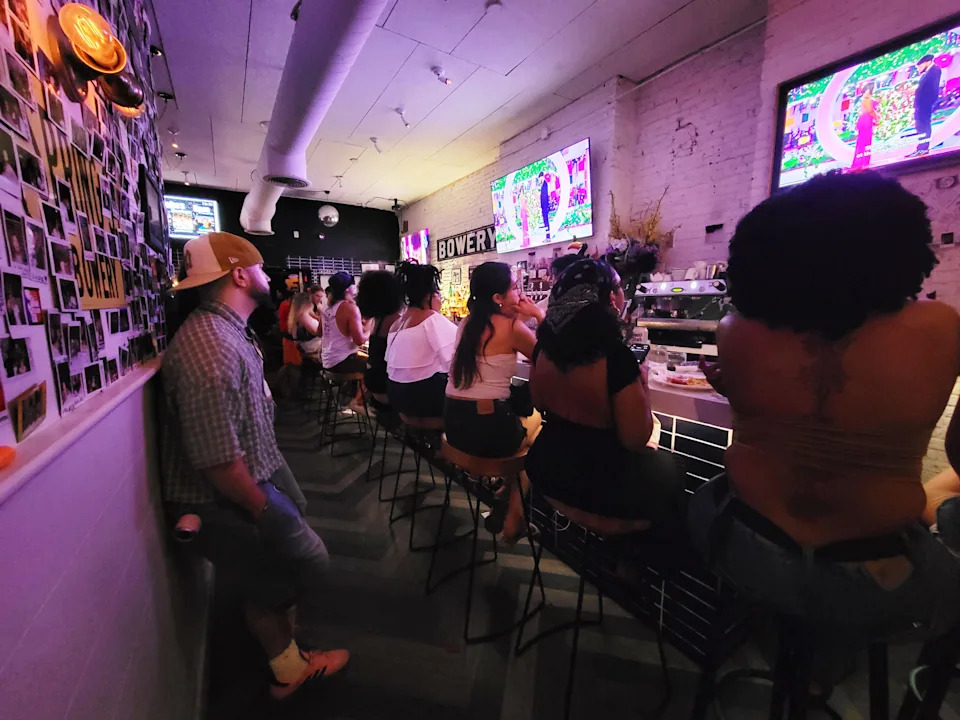 Fans watch the Love Island USA finale. (Courtesy of Laura Bradley)
Fans watch the Love Island USA finale. (Courtesy of Laura Bradley)Rachel Kocachkov, 24, who does administrative work for a mutual fund, told me she’s a newer reality TV fan. The Bachelor franchise was her gateway drug, and then she started watching the original, U.K.-based Love Island four years ago. Last summer, she checked out the U.S. version's blockbuster sixth season and was hooked.
AdvertisementAdvertisement#_R_1672adkalhb5fiv5vddbH1_ iframe AdvertisementAdvertisement#_R_2672adkalhb5fiv5vddbH1_ iframeAs it turns out, she wasn’t alone. Season 6 blew its predecessors out of the water in terms of viewership data. Ahead of its July 21, 2024, finale, Love Island USA became the No. 1 reality series in the United States across streaming platforms, according to Nielsen. That’s compared to Season 1, which aired on CBS, and had around 2 million viewers.
“I like the format. I like the accents,” she laughed. “It’s just interesting, and it was a different kind of love for reality TV. That’s what drew me in.”
The Love Island franchise is, indeed, fairly different from any other. Whereas other dating series like The Bachelor and Love Is Blind tend to zoom in on marriage and heartbreak, Love Island feels more lighthearted. In the U.S. version, the young hotties spend six weeks in the Fiji-based villa, where they form friendships and romantic relationships (and sometimes trade partners) in the hopes of finding deep connections.
The game starts off with 10 islanders whose relationships get tested by a rotating cast of “bombshells.” (This season’s cast had 30 people in total.) Throughout the season, couples participate in challenges while America periodically votes for its favorite pairings. In the end, the final four couples decide what’s next for their relationship, while the top-voted duo wins a $100,000 cash prize. They either split the money or one of them takes the money and runs — leaving their partner high and dry. That pragmatism seeps into fan discussions as well. When this season crowned its winner, Peter VanDunk, 30, who works in PR, told me, “I hope she gets every brand deal and then some.
AdvertisementAdvertisement#_R_1972adkalhb5fiv5vddbH1_ iframe AdvertisementAdvertisement#_R_2972adkalhb5fiv5vddbH1_ iframeUnlike other dating shows like The Bachelor, Love Island USA episodes air just days after they’re shot — which means there’s less room for producers to craft story arcs and for disreputable houseguests to blame their “edit.” The contestants, all in their twenties, bring a certain Gen Z sensibility to the mix and they lack the self-consciousness that many of their millennial predecessors have historically brought to the on-camera experience. In other words, they’re not just attractive — they’re effortless in a way that could one day convince us to buy whatever products they’re selling on social media.
‘The people’s princess’
More than any other factor, the voting aspect feels particularly instrumental to Love Island USA’s success. It gives fans a real stake in the drama and makes the online conversation even zestier.
At the bar, everyone had their favorites.
Before the winner was revealed, Kocachkov said she adored Amaya Espinal and believed she deserved the victory. “But in my heart,” she said, “I love Nic [Vansteenberghe] and Olandria [Carthen].”
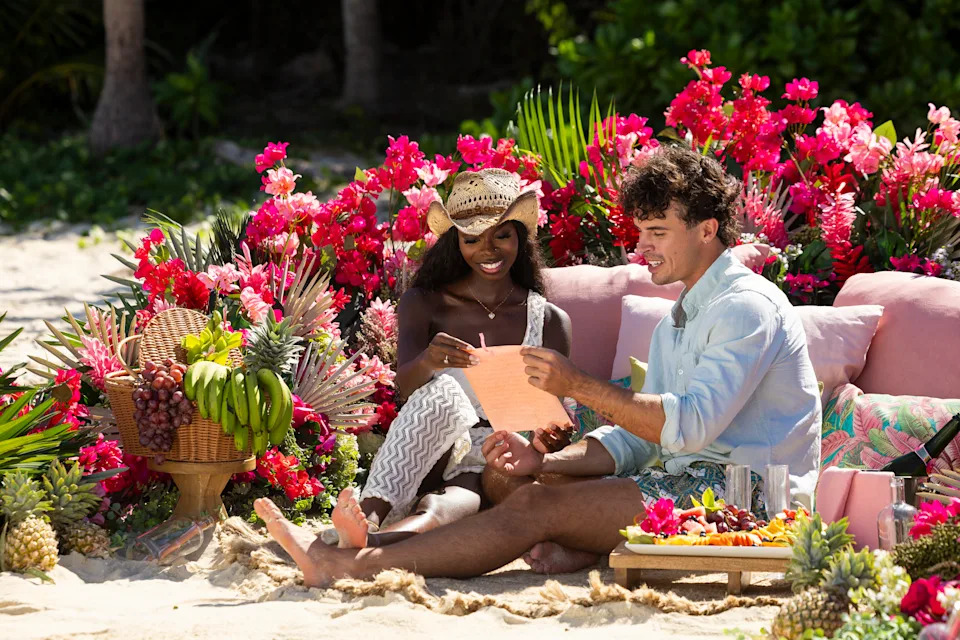 Olandria Carthen and Nicolas Vansteenberghe on Love Island USA. (Ben Symons/Peacock)
Olandria Carthen and Nicolas Vansteenberghe on Love Island USA. (Ben Symons/Peacock)Meanwhile, 24-year-old Esther Martinez, who works as a senior analyst for a makeup company, said she was rooting for Jose “Pepe” Garcia-Gonzalez and Iris Kendall — “mostly because I think Pepe is extremely hot.” That said, Martinez added, “I know that Amaya’s gonna win. I feel like so many people love her that there’s no way she doesn’t. And honestly, I’m happy for her. She’s from Brooklyn. She’s Dominican, as am I, so good for you, girl. Even though I didn’t vote for her, I’m so happy for her.”
AdvertisementAdvertisement#_R_1dn2adkalhb5fiv5vddbH1_ iframe AdvertisementAdvertisement#_R_2dn2adkalhb5fiv5vddbH1_ iframeEven without having watched one episode, I could tell from the emotion in the bar that Espinal and her beau, Bryan Arenales, were going to win. The crowd might have cheered for every good make-out session and confession of love that we witnessed during the two-hour finale, but whenever Espinal came onscreen, it felt like their hearts were really in it.
VanDunk offered a simple explanation as to why: “She’s the people’s princess.”
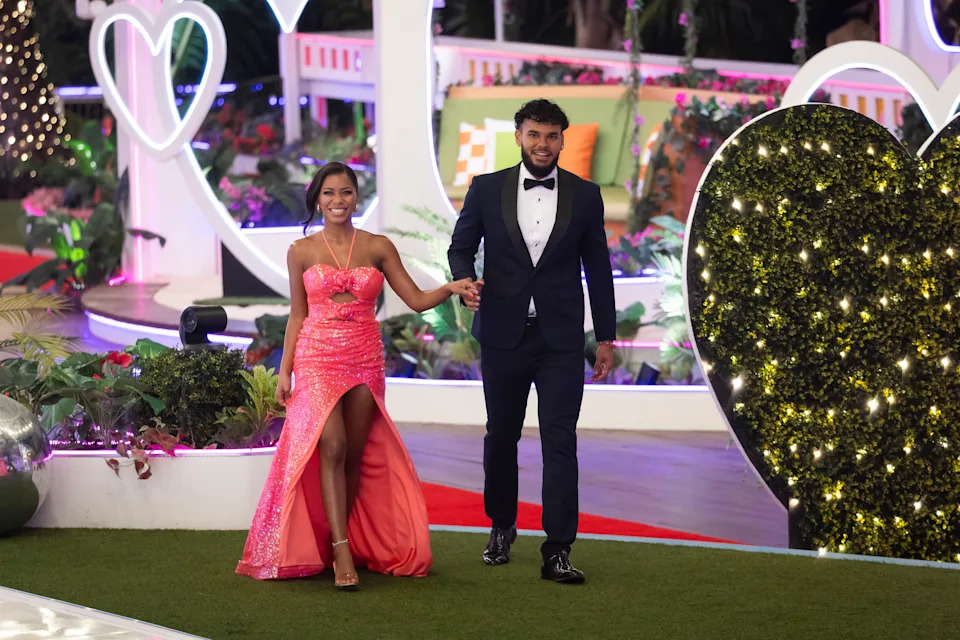 Amaya Espinal and Bryan Arenales on Love Island USA. (Ben Symons/Peacock)
Amaya Espinal and Bryan Arenales on Love Island USA. (Ben Symons/Peacock)According to VanDunk, Espinal “captured our hearts and minds by just being her authentic self. Honestly, it seemed like everybody else had some sort of agenda or they were putting on a personality. But [with Espinal], you could tell the authenticity was just dripping through the TV.”
The word authenticity might court eye rolls from many longtime fans and makers of reality television, but, as is the case with most of these shows in the end, it does feel central to the show’s appeal. Based on the joyful eruption I witnessed when Espinal and Arenales were crowned the season winners, Love Island USA brings an aspirational quality that goes beyond beachside romance and poreless skin. Apparently, this show is also a functioning democracy (for this season, at least).
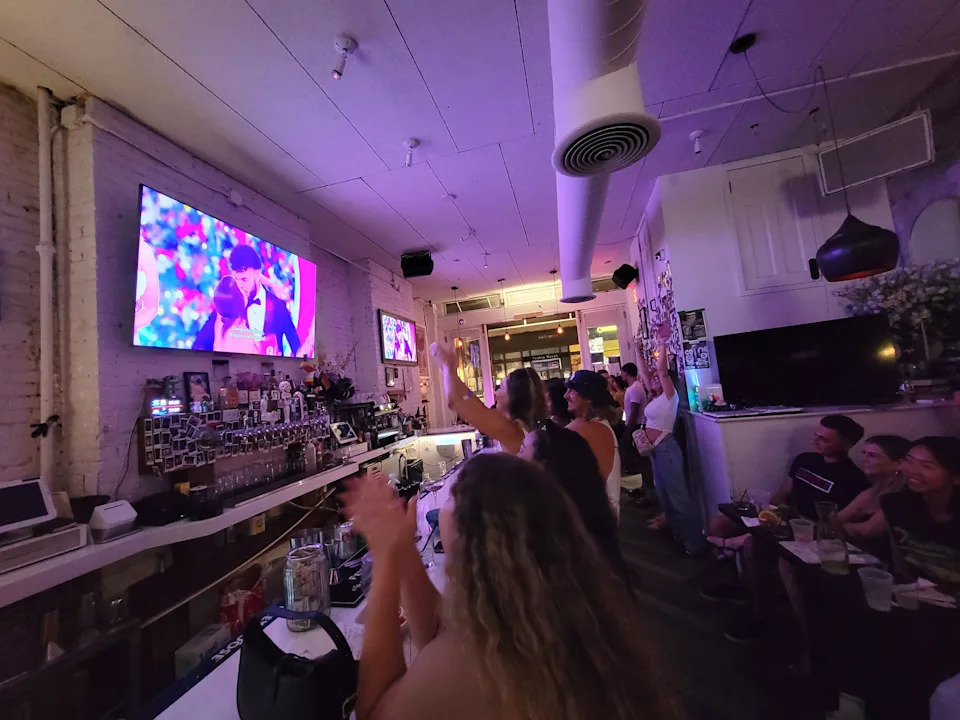 Viewers erupt as the season's winning couple is announced. (Courtesy of Laura Bradley)
Viewers erupt as the season's winning couple is announced. (Courtesy of Laura Bradley)When you’re sitting in a room full of fans who erupt each time a couple locks lips, the reason for this show’s appeal feels far more obvious than all that. All night, I found myself completely engrossed by the hot people onscreen, the absolute fervor of the crowd and the drama I only half understood.
AdvertisementAdvertisement#_R_1hn2adkalhb5fiv5vddbH1_ iframe AdvertisementAdvertisement#_R_2hn2adkalhb5fiv5vddbH1_ iframeI gasped when, on a candle-lit dream date in the water, Huda Mustafa ended things with Chris Seeley by saying they should just be friends — an outcome I soon learned was actually very predictable to those who’d been watching their relationship sputter. I choked on my french fry when Mustafa asked Seeley to carry her over the water despite the breakup and he replied, “I’m not going to carry you,” a moment that had the room screaming. And when Amaya “Papaya” took home the big prize, I felt victorious despite having little idea why.
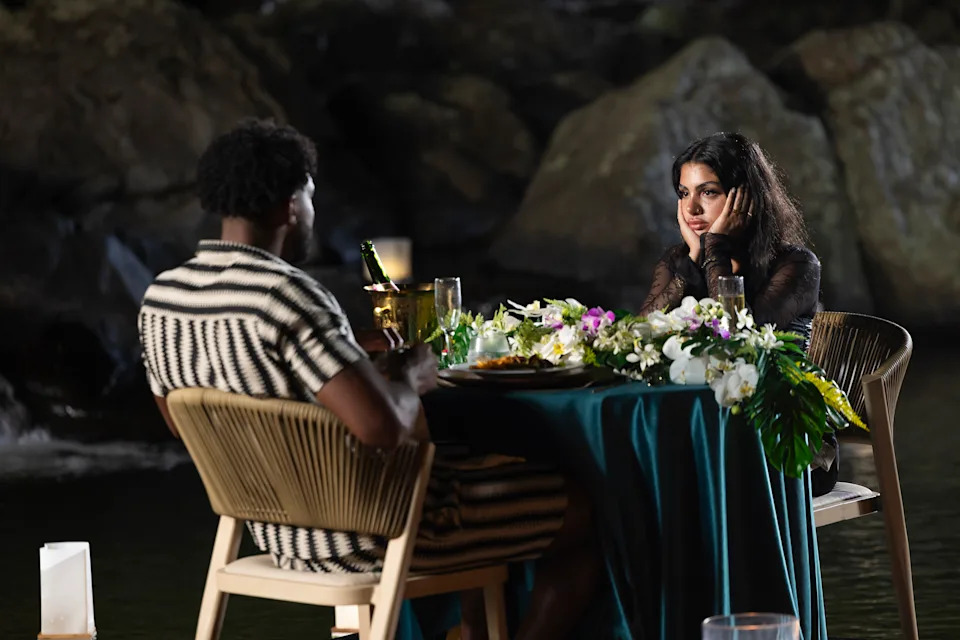 Chris Seeley and Huda Mustafa on Love Island USA. (Ben Symons/Peacock)
Chris Seeley and Huda Mustafa on Love Island USA. (Ben Symons/Peacock)Funnily enough, when asked why this season seems to have pierced the mainstream, Kocachkov and Martinez agreed that it’s not the best this show has to offer. In fact, Season 6 set the bar impossibly high last year.
“It doesn’t matter if this season is genuinely good or not,” Martinez said. “People were gonna be upset, period, because last season was pure frickin’ gold.”
Kocachkov was less charitable about this season’s offerings. “Objectively,” she said, this “was one of their worst seasons.”
AdvertisementAdvertisement#_R_1kn2adkalhb5fiv5vddbH1_ iframe AdvertisementAdvertisement#_R_2kn2adkalhb5fiv5vddbH1_ iframeSo why stick around — especially considering the massive time commitment of six episodes per week? For those who love the show, it’s not an obligation at all. As Martinez put it, “It’s something to look forward to.”
At the start of Season 7, Kocachkov had told her friends she wouldn’t tune in. “But [around] Episode 2, I was like, ‘Fine, I’ll watch it.’ I really enjoyed being a part of the discourse, and honestly it brought me closer to people I haven’t talked to in a while. We would just be texting each other every night.” When asked what sets this fandom apart, Kocachkov described it as “chronically online.”
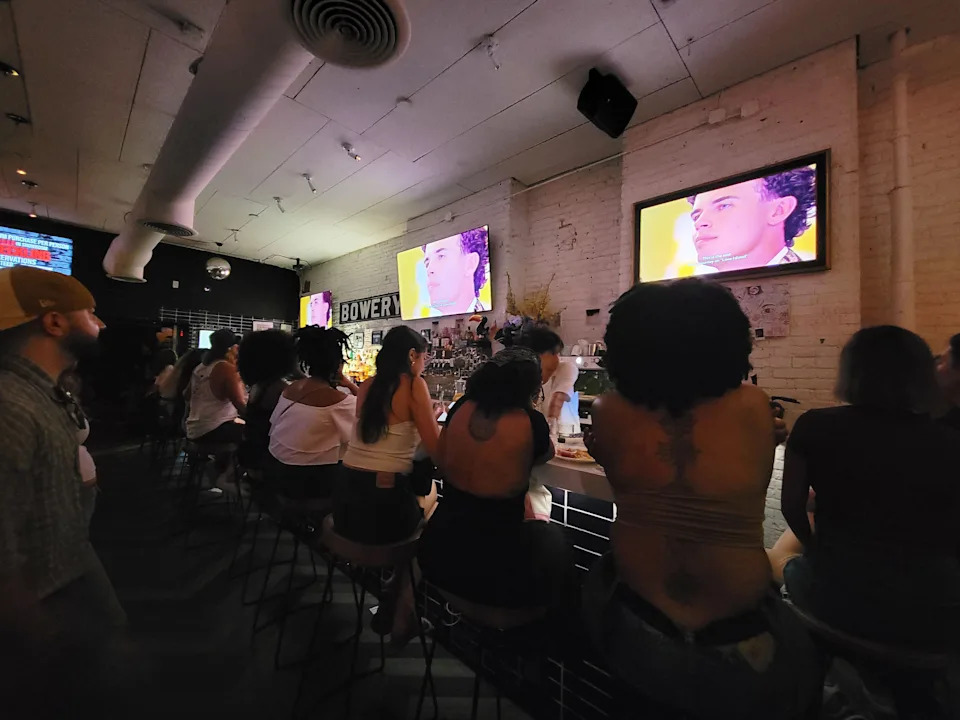 Fans of the series gather to watch the finale. (Courtesy of Laura Bradley)
Fans of the series gather to watch the finale. (Courtesy of Laura Bradley)If there’s one thing the Love Island fandom knows how to do, it’s produce a flurry of memes each week that make outsiders want to tune in. Emotions tend to run high at the villa, and confessional interviews often make for great reactions worth sharing online. Whether fans are sharing videos of Huda crying or Photoshopping their own "dream date" meme, the bright colors and shiny skin of the subjects always let us know exactly which show the images came from before it’s even referenced. And as we saw this season with Amaya standing up for herself as a "sensitive gangster," after the men in the house accused her of being too emotional, the social media chatter can sometimes morph into full-blown discourse.
In other words, the reason for Love Island’s seemingly sudden breakout is a tale as old as television. It’s the same reason people crowd into a sports bar to watch the big game. The same reason millions and millions of us got hooked on American Idol. The same reason people pile into the Comedy Shop and other bars just like it for other watch parties, like House of the Dragon. The show becomes an excuse for connection — with the cultural “discourse,” with coworkers and even with old friends who might’ve slipped through the cracks over the years.
As the entire room screamed for the couples to “jump in the pool! Jump in the pool!” at the end of the episode, I got the message loud and clear.



